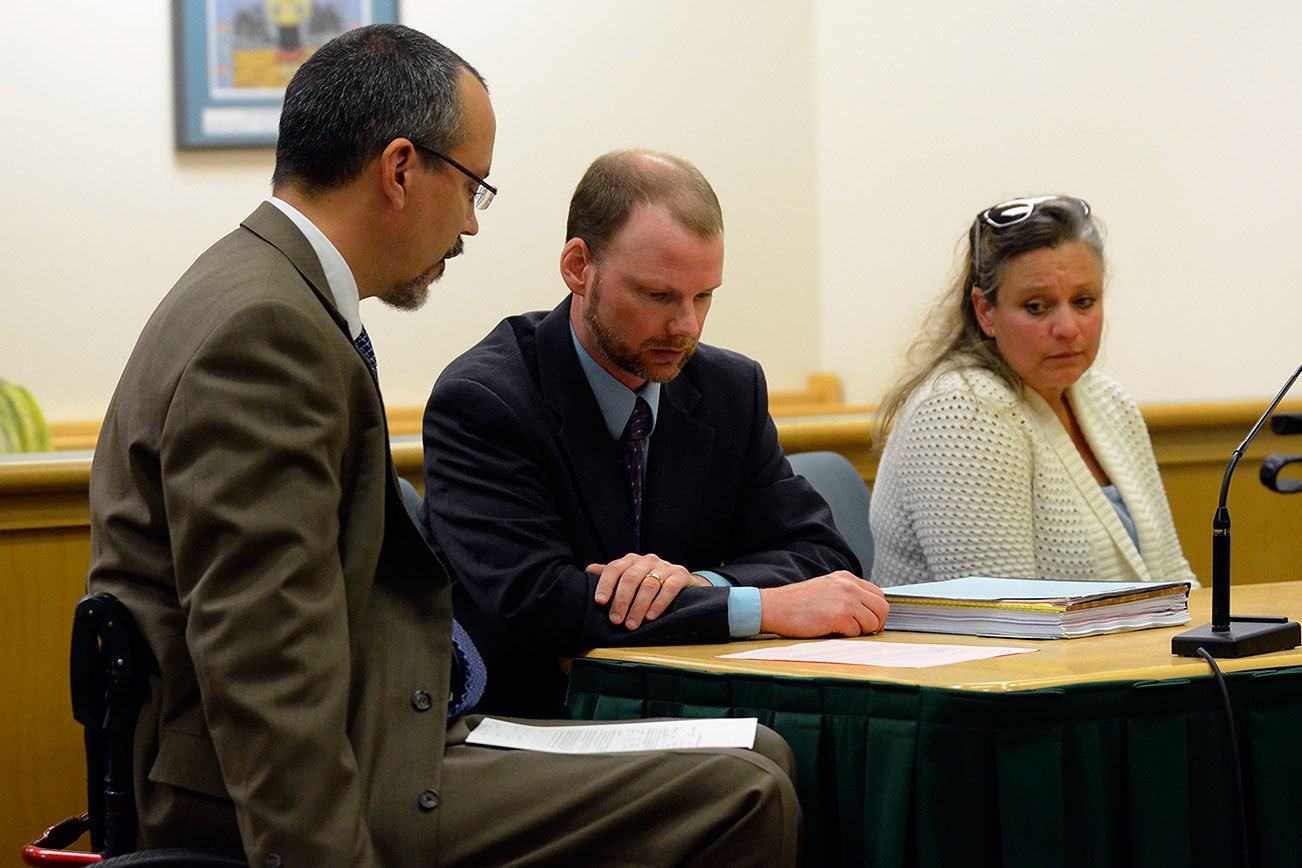A South Whidbey woman accused of driving drunk and causing a Valentine’s Day crash that killed a Freeland man in 2015 is scheduled to stand trial next week.
It may be an unusual legal proceeding, however, and one that results in a swift verdict.
Attorneys in the vehicular homicide case against Michelle Dawn Nichols confirmed this week that they’re negotiating terms for a bench trial, which would see a ruling issued by a judge rather than a jury. Rare in Island County, it’s a legal path sometimes used to avoid a lengthy trial and expedite an anticipated appeal when both sides believe a specific verdict is likely.
It is still unclear whether a bench trial will go forward as planned, as both the prosecution and defense must agree on stipulated evidence — what will and won’t be considered in court — and the process has to be green-lighted by presiding Island County Superior Court Judge Vickie Churchill. Eric Ohme, chief criminal prosecutor for Island County, said in an email that he believes an agreement will be reached by Dec. 16, the scheduled trial date, if not sooner.
“I am hopeful that by the end of today it will be finalized,” he said in a Friday email to The Record.
There are several reasons why attorneys might prefer a bench trial over one decided by a jury. There can be concerns about jurors’ ability to remain impartial in small communities where the victim and accused are well known or when a case has been well publicized.
There are also rare situations where a judge’s pretrial rulings are determinative of the case, according to Island County Superior Court Judge Alan Hancock.
“In some cases, the judge’s pretrial ruling may be perceived by the attorneys as likely to be determinative of guilt or innocence,” he said, meaning that a jury may be likely to reciprocate that position.
Earlier this year, Churchill denied a motion by the defense to suppress Nichols’ blood results after her blood was taken without a warrant.
Nichols, 48, was southbound on Highway 525 on Feb. 14, 2015 and was nearing the intersection at Coles Road when her vehicle swerved into oncoming traffic, striking southbound motorist Timothy Keil. Nichols suffered severe injuries and was airlifted to Harborview Medical Center in Seattle.
Keil, 61, died at the scene.
Nichols’ blood was taken four hours after the crash while she was unconscious; her toxicology results revealed a blood-alcohol content of .11 — the state limit is .08.
Both Ohme and Nichols’ attorney, David Carman of the Langley-based Law Offices of Jessie Valentine and David E. Carman, were wary of discussing the details of the negotiations before they were complete.
Speaking by email, Ohme said one of the primary benefits to a bench trial is that it would spare the victim’s family from a lengthy proceeding.
“A jury trial in a case of this nature is generally very hard on the victim’s family,” he wrote.
A jury trial could also result in appellate issues that could be later argued in an appeal, or result in a reversal of a conviction. Also, with agreed-upon evidence, it would likely focus an appeal on specific issues, such as Nichols’ blood results.
Carman agreed that a bench trial, if it happens, would likely be quick. He said there will be steps beyond a trial in this case, probably involving “at least an appeal,” he said. He declined to speak specifically to what an appeal might include but said the defense’s belief that Nichols’ blood work was taken without sufficient probable cause remains unchanged.
“Without a finalized decision about whether it will be a bench trial or not, I’m not in a position to give a preview of the defense’s strategy,” he said. “But the defense’s position on that motion is unchanged.”
According to Ohme, if Nichols is found guilty in a bench trial and a later appeal failed, the conviction would stand. If the appeal is successful, the case would go back to trial, likely by a jury, but the blood results would be inadmissible.



